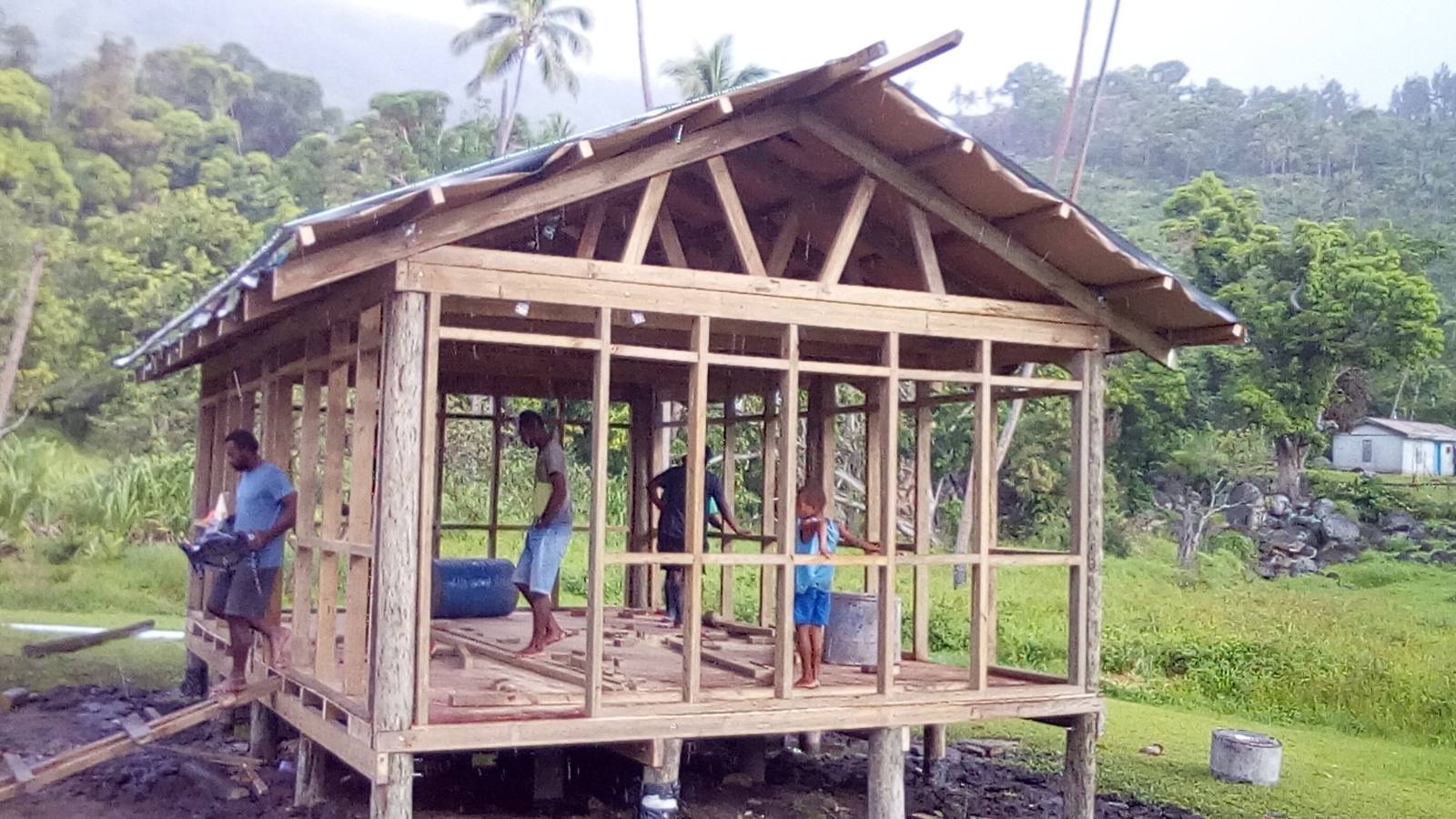
Forestry Commits to Helping Fijians Build Back Better and Stronger
Holding true to Government’s
commitment to helping Fijians build back better and stronger following the
onslaught of Tropical Cyclone Harold amidst the ongoing impact of COVID-19, the
Ministry of Forestry has so far produced pine posts, poles and timber packs for
more than 300 homes in Kadavu.
During his recent visit to Kadavu, the Minister for Forestry Honourable Osea Naiqamu was delighted to know that after 27 weeks of operation in the province, the Ministry has managed to complete the structures of 315 houses covering 36 villages.
The number of completely damaged
houses in Kadavu after Tropical Cyclone Harold struck in April this year was
assessed at 596 of which over 300 are within the
Pine Schemes.
Minister Naiqamu said timber treatment started again last week and the ministry has managed to treat 19.38m3 of sawn timber at H3 level bringing the total timber treated to 187.4 m3. The number of post and poles that have been treated at H5 level stands at 938 with a volume of 66.15m3.
“I am reaching out to the Ministry of Rural and Maritime Development and the Ministry of Housing and Community Development to see how we can start re-building cyclone resilient houses as the timber is ready,” Minister Naiqamu said. “Collectively, we are responsible for the housing rehabilitation.”
Minister Naiqamu also visited Tawava village in the district of Yawe where he took the time to inspect the completed village store – a village project by the Tawava Youths.
“These youths did not wait for
further Government assistance as they already had their roofing iron given by
the Ministry of Youth & Sports and other building materials ready.”
“The youths had reached out to
our Ministry staff that spent a week in the village to construct the 24feet x
16feet house structure for the village store.”
Tawava village chief, Ratu
Malakai Masi said their village store was completely destroyed during TC Harold
and the youths were temporarily using the kitchen in the village community hall
to store food supplies, sanitary goods and other products generally consumed by
the villagers.
Mr Masi said the community hall
was open to all the villagers during village meetings and at times not safe to
keep things stored there.
“The fittings for our solar
freezer that we used to store fish and frozen goods had also been destroyed
during TC Harold and now with the new store constructed, we will seek
assistance and ensure it is repaired,” Mr Masi said.
“One of the challenges we face
here in the village is that we are far away from Vunisea and it costs us $200
one-way by fibre boat so you can imagine spending $400 on transport costs to
buy basic necessities that will cost us far less,” Mr Masi said.
“I am very grateful to the Ministry of
Forestry who sent their carpenter over to spend a week in the village to guide
the youths in the construction of the village store.”
“Now we have our basic
necessities right here at our doorstep and this is such a relief for us.”
Minister Naiqamu said timber for home construction is one of the main products derived from trees that have for time immemorial become a basic necessity for humankind and this emphasises not only just the importance of trees, but also of entire forests and nature in providing innumerable benefits from ecosystem services right through to food security.
“In Fiji, community-based forest plantations were
initiated by Government in the 1970s to transform barren grass lands or ‘talasiga’ landscapes with the hope that
the trees could provide benefits such as the restoration of ecosystem services,
enhancing biodiversity, and supplying timber for the construction of homes,
with trade being an option for any surplus.”
Apart from the timber structural
packs awaiting the construction of new houses in Kadavu, the Ministry of
Forestry in collaboration with Fiji Pine Trust has also assisted villages that
fall under the pine schemes to trade off their surplus timber as another source
of economic empowerment.
He added the planting of mostly pine trees was accomplished largely through traditional community practices or ‘solesolevaki’ where work was done in groups on a voluntary basis.
“The pine plantations were
managed under the concept of community-based or ‘vanua’ schemes to strengthen governance issues and the
coordination of community support.”
The majority of pine plantations in the maritime islands
had matured and were ready for harvesting. However, numerous attempts to
harvest the mature pine trees and to ensure optimum returns to the landowners have
been largely unsuccessful due mainly to the geographical disposition of the
islands which meant exorbitant harvesting, processing and transportation costs.
“In fact, over the years, several
‘giants’ of the logging industry went to the islands well resourced, but
returned empty handed,” Minister Naiqamu said.
“The cost of operations right
through to shipment were the main challenges.”
These setbacks, Minister Naiqamu
said resulted in some resource-owners becoming doubtful of their chances to
gain maximum returns from their resources.
“Many were just able to harvest
trees for their homes, but again the lack of technical know-how and the absence
of proper treatment facilities meant the houses were not durable.”
Today, the Ministry of Forestry is working collaboratively with Pine Scheme Owners to support the availability of housing structure material by harvesting and processing fallen and damaged pine trees on the islands.
The Ministry has purchased
additional portable sawmills to assist with this operation and is also carrying
out the housing rehabilitation work in Vatulele, Matuku, Totoya and Ono-i-lau and hope to move to other islands
or districts.